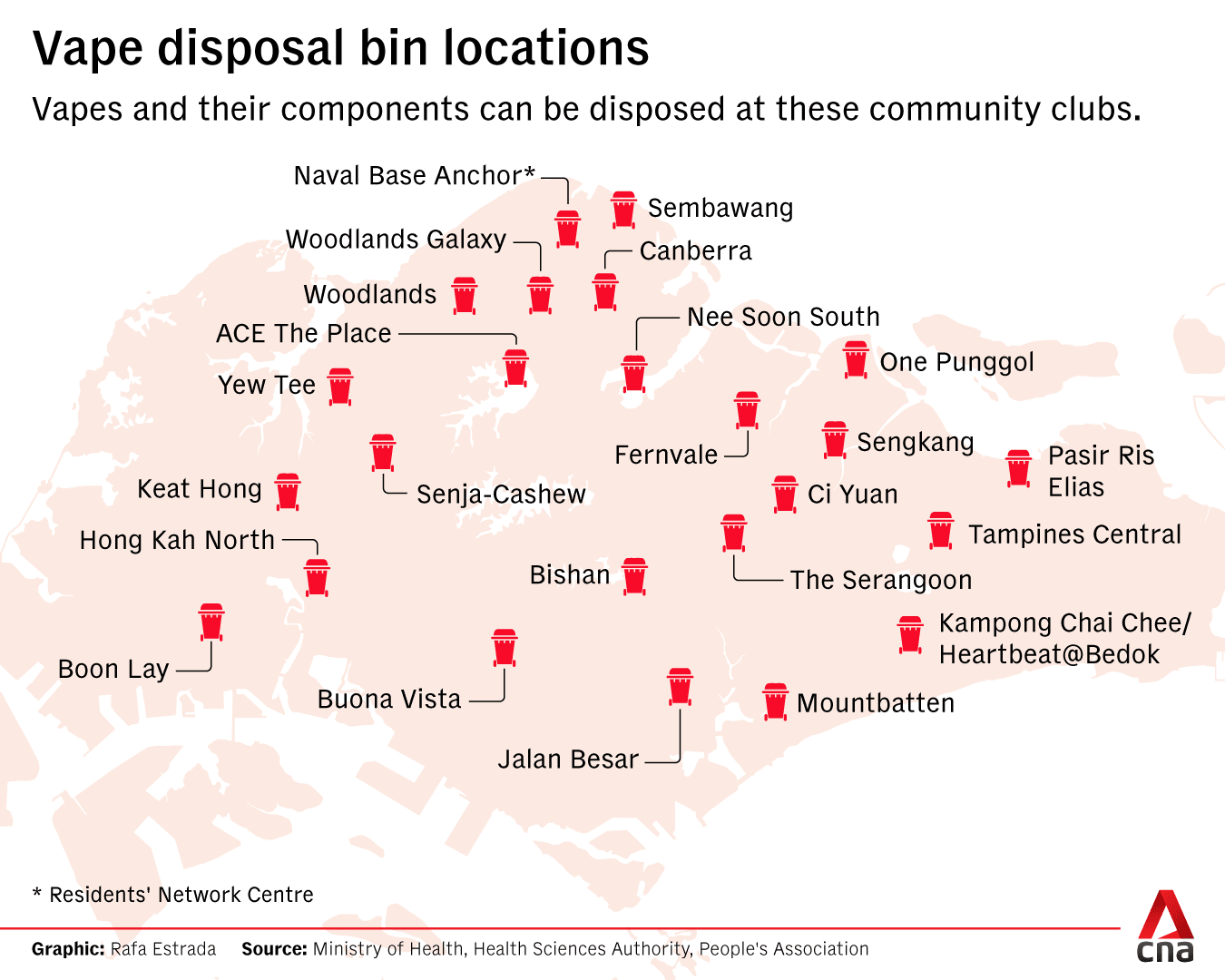MOE briefing students on dangers of Kpods; teachers warned they can be sacked if caught vaping
These mass briefings are part of education efforts against vaping that will complement ongoing preventive measures, said an MOE spokesperson.

Xishan Primary School students on Aug 4, 2025, learning about the dangers of vaping. (Photo: Instagram/xishan_ps)

This audio is generated by an AI tool.
SINGAPORE: The Ministry of Education (MOE) has instructed all public schools to brief students on the harms and penalties of using Kpods, amid rising concerns over youngsters using such drug-laced vapes.
These mass briefings – to be conducted at primary and secondary schools, junior colleges and Millennia Institute – are part of the ministry’s education efforts against vaping that will complement ongoing preventive measures, an MOE spokesperson told CNA.
“Students will also be reminded to be vigilant about vape peddling activities near schools,” the spokesperson added.
This comes after a Primary 4 student from Fairfield Methodist School (Primary) was allegedly approached to buy vapes outside his school last month.
CNA understands all primary schools have been told to brief Primary 4 to Primary 6 pupils by Friday (Aug 15).
MOE staff have also been warned that they could be subject to disciplinary action and penalties, including being fired, if they are caught vaping or are found with a vape device, according to a circular seen by CNA.
Kpods, also known as “zombie vapes” or “space oil”, are laced with chemicals such as etomidate – a fast-acting anaesthetic used in medical procedures. Side effects can include vomiting, muscle spasms and seizures.
The device is commonly known as a Kpod because they are sometimes also laced with ketamine, another anaesthetic that has hallucinogenic properties.
SUPPORT AVAILABLE
At Xishan Primary School, for example, students have been told through a briefing earlier this month that vapes are “harmful to your body and mind”, and that support is available to those looking to kick the habit.
They were told that vapes – including Kpods – can damage their lungs, affect their concentration, and are as dangerous as smoking.
Students have been urged to report any vape peddlers to a trusted adult, and reminded that vapes can be disposed of safely at several bins around the country under the “Bin the Vape” initiative launched last month.
Authorities have said that those who bin their e-vaporisers or voluntarily seek support for quitting will not face any penalties for doing so.

Schools can tailor the content of the presentation based on their student profiles. CNA understands that MOE is teaming up with the Health Promotion Board to amplify the message through skits and other engaging activities at schools.
PARENTS GETTING INVOLVED
Parents and guardians have also been roped in to join the fight.
They have been briefed via Parents Gateway on the health and legal risks of Kpods, signs of addiction and ways to support their children. These include watching out for behaviours like hiding vape devices, which can be disguised as ordinary items like pens.
Teachers whom CNA spoke to emphasised that schools need to intervene consistently with talks and other programmes, even before kids get involved with vaping.
They also said they hope parents continue these conversations at home so that their children receive guidance in what has been a complex issue.
CHILDREN, TEENS VULNERABLE TO KPODS
Etomidate, which has been found in one in three vapes seized by the authorities in Singapore, will soon be classified as a Class C drug under the Misuse of Drugs Act.
Once this comes into force, those caught using etomidate-laced e-vaporisers will be subject to mandatory supervision and rehabilitation. Repeat offenders may be prosecuted and jailed for at least a year.
Those caught selling, distributing or importing etomidate-laced e-vaporisers will be subject to more severe penalties, including jail time of up to 20 years and caning.
Medical professionals previously told CNA that etomidate is extremely dangerous when used outside a controlled medical environment.
When its effects start to wear off, users may experience withdrawal symptoms such as increased anxiety and agitation. They may also get hallucinations and fall into a dissociative state.
Psychologist Annabelle Chow told CNA’s Singapore Tonight programme that young children and teenagers are vulnerable to Kpods as their brains have not yet fully developed to make mature or wise decisions.
“This is the time where they start to have more ideas of their own. They are a bit more assertive with their opinions and choices. They accept more peer influence compared to parent influence. If you don't have a preexisting solid relationship with them, it will make having conversations very difficult,” she added.
“At that age, and depending on how the Kpod is marketed to them, it can get quite dangerous.”
While Dr Chow said she has not treated children aged 10 to 13 dealing with Kpod addiction, she has patients who have “expressed quite intense anxiety” over peddlers near primary schools who can potentially reach their children.
The principal clinical psychologist at Annabelle Psychology added that she advocates for open dialogue at school and at home.
“It's really important that children receive consistent messages from all the adults around them – from the schools, from our government, from parents,” she added.


















